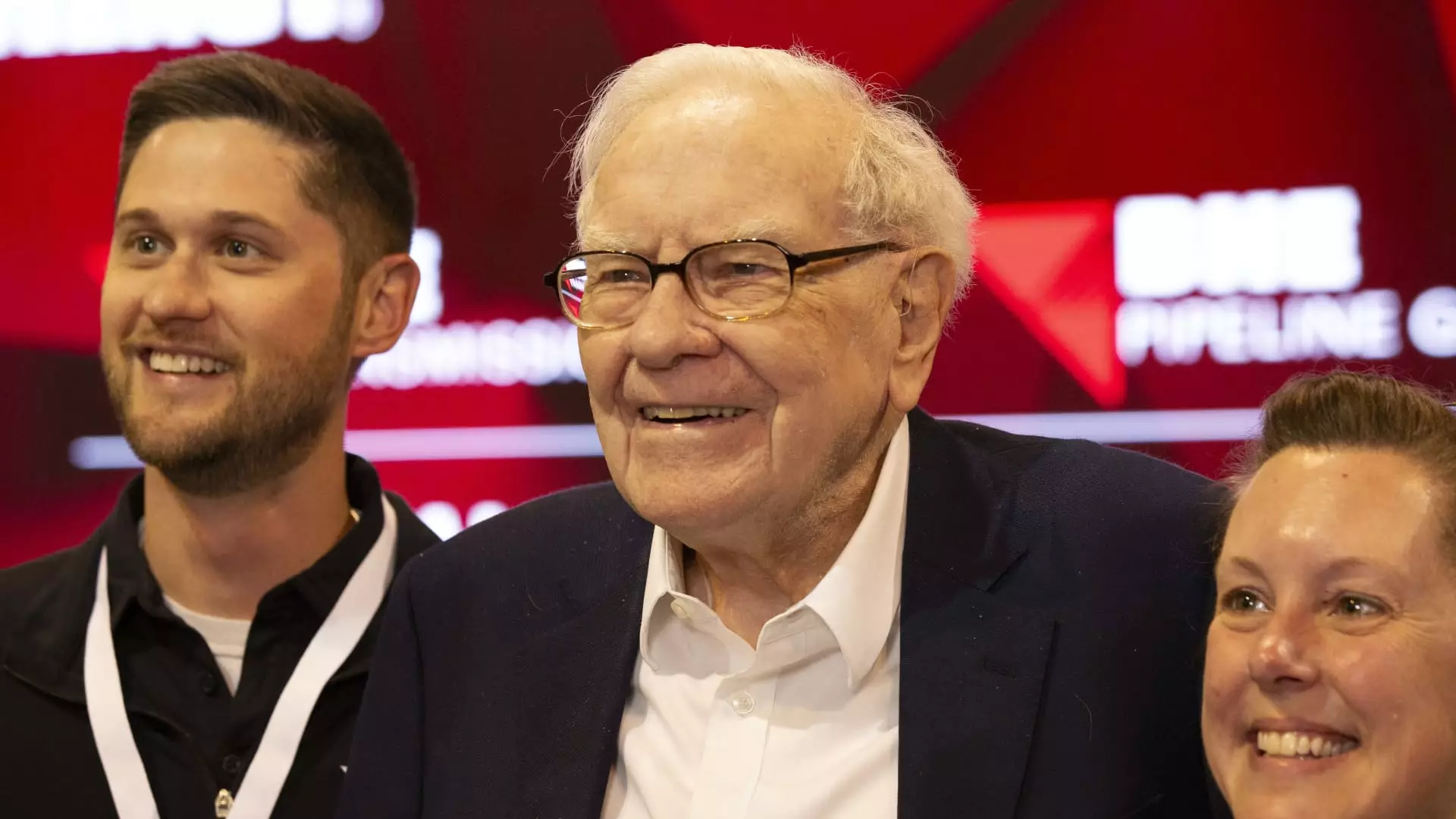As Warren Buffett prepares to communicate with shareholders and the broader investment community, there is heightened anticipation regarding his insights on several pivotal issues that could shape the investment landscape. At 94, the “Oracle of Omaha” remains a trusted voice in the financial world, particularly in challenging economic climates like the one we are currently experiencing. With a significant trade war unsettled, widespread devastating wildfires, and noteworthy stock movements at Berkshire Hathaway, investors are eager to glean Buffett’s thoughts in his much-anticipated annual letter, scheduled for release Saturday at 8 a.m. ET alongside Berkshire’s fourth-quarter earnings.
The letter is not just a retrospective look at the year; it serves as a guide to navigating the complexities of the market. In the past, Buffett has been open about external factors affecting economic trends, including government policies and natural disasters, and this year promises to be no different.
Wildfire Exposure: A Significant Concern for Berkshire
One of the immediate challenges facing Berkshire Hathaway pertains to the record-setting wildfires that have swept across California, posing potential risks to the company’s various insurance operations. Despite Berkshire not being heavily entrenched in California’s insurance market, its substantial reinsurance division could still bear the brunt of the fallout.
Experts believe that insurance claims stemming from the wildfires could surpass $40 billion, a staggering figure that points to significant financial implications. Analysts like James Shanahan from Edward Jones have highlighted that, while the company’s exposure might not be direct, the liabilities incurred through reinsurance agreements could be considerable. There’s a growing sense among investors that Buffett’s remarks in the forthcoming letter may shed light on Berkshire’s anticipated losses related to these catastrophic events.
While forecasts vary, UBS analyst Brian Meredith has noted projected losses of about $1 billion for Berkshire Reinsurance and an estimated $150 million in claims for Berkshire Primary, which encompasses various insurance types, including commercial property and health-care. Furthermore, there are concerns that Geico, Berkshire’s auto insurance subsidiary, may also face manageable but non-negligible claims due to the wildfires, adding another layer of complexity to the company’s risk profile.
Trade policies, particularly those enacted under the trump administration, continue to be a crucial topic that investors hope Buffett will address. With the recent implementation of substantial tariffs on goods imported from major trading partners, including Mexico, Canada, and China, there is a question of how these tariffs could ripple through Berkshire’s extensive portfolio.
Buffett’s historical stance on tariffs, which he previously described as a “tax on consumers,” indicates a clear understanding of the broader economic consequences that could arise from aggressive trade strategies. His potential commentary on tariffs could provide invaluable insight into how Berkshire’s companies are navigating these tumultuous waters and might reveal if any sectors, such as construction materials, are grappling with challenges due to import restrictions.
Analysts believe that the implications of these tariffs could hit Berkshire’s underlying operational businesses in various sectors, impacting profitability and subsequently shareholder value.
Another focal point for Buffett’s address is the ongoing trend of stock divestments at Berkshire Hathaway. Reports indicate that the conglomerate has continued its selling spree, recently offloading additional shares of Bank of America, dropping below the critical 700 million share threshold that had previously been a point of stability for the company’s investments.
This strategic sell-off has sparked discussions regarding Buffett’s outlook on the market, particularly the notion that he may view current stock prices as inflated. Shanahan pointed out that Berkshire has been selling more stocks than it is purchasing for nine consecutive quarters. This trend, coupled with a record cash reserve exceeding $300 billion, raises questions about Buffett’s future investment strategy.
The lack of substantial new investments may signal a cautious approach towards the market, suggesting that Buffett is exercising restraint amidst what he perceives as an expensive market environment.
In light of Buffett’s age and the inevitable transition of leadership, succession planning has become a paramount concern for Berkshire Hathaway. Over the past year, Buffett has been active in settling litigation and clarifying financial arrangements that pave the way for his chosen successor, Greg Abel.
The recent acquisition of the remaining stake in Berkshire Hathaway Energy and strategic partnerships illustrate Buffett’s ongoing efforts to ensure the company’s market strength and sustainability beyond his tenure. As stakeholders await Buffett’s insights on these leadership transitions and their implications for the company’s future, there is cautious optimism about Berkshire’s resilience and ability to adapt to an evolving market landscape.
As Buffett prepares to engage with shareholders, his insights could provide much-needed clarity on how Berkshire Hathaway is facing current challenges while setting the stage for future success. Investors remain committed to deciphering his messages, eager for guidance in navigating the complexities of today’s financial environment.

